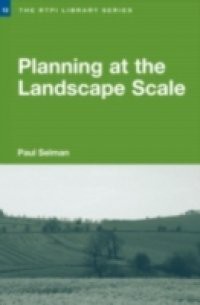Traditionally, landscape planning has involved the designation and protection of exceptional countryside. However, whilst this still remains important, there is a growing recognition of the multi-functionality of rural areas, and the need to encourage sustainable use of the whole countryside rather than just its 'hotspots'. With an inter-disciplinary assessment of the rural environment, this book draws on theories of landscape values, people-place relationships, sustainable development, and plan implementation. It focuses on the competing influences of globalization and localization, seeing the role of planning as the reconciliation of these conflicting demands, reinforcing character and distinctiveness without museum-izing rural areas. Taking a 'landscape scale' approach to the topic, this book responds to the interest sparked by concern for rural landscapes and by recent local and national policy shifts in this area.

